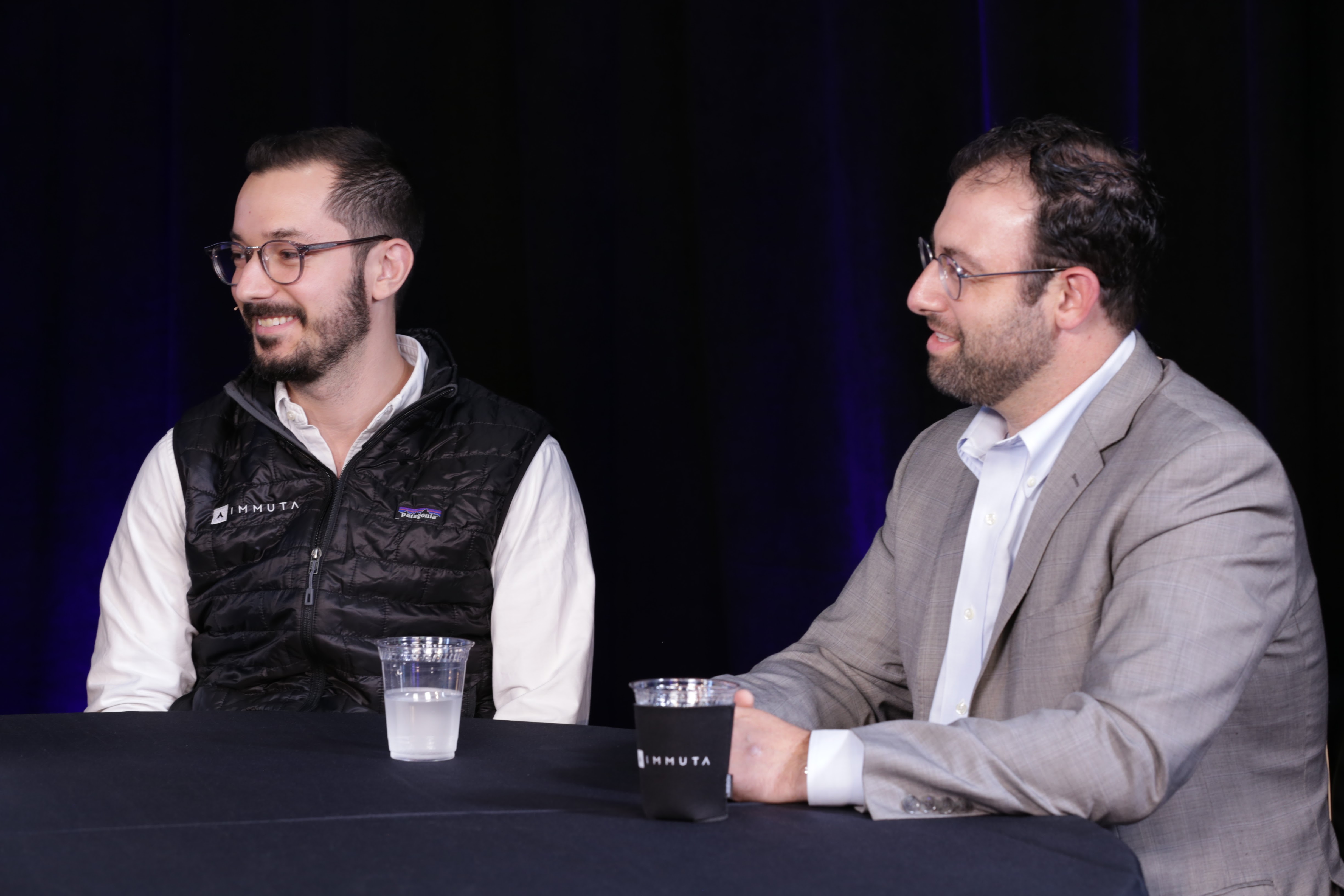 BIG DATA
BIG DATA
 BIG DATA
BIG DATA
 BIG DATA
BIG DATA
The digital transformation is empowering the business world to extract immense value from new sources of data, like social networks and web browser activity. But policy makers are looking to catch up with the technology trends by establishing protections regarding the ethical use of consumer data, including the European Union’s upcoming General Data Protection Regulation.
To help ease the growing sense of fear among data practitioners struggling to achieve compliance, Immuta Inc. created a platform allowing organizations to enforce algorithmic policies by writing compliance software rather than relying on data scientists’ interpretations of new rules.
“We create an abstraction layer between the data and the data science tools, and we’ll dynamically enforce policies based on the values of the organization,” said Andrew Gilman (pictured, left), chief customer officer of Immuta.
Gilman and Andrew Burt (pictured, right), chief privacy officer and legal engineer at Immuta, spoke with John Furrier (@furrier), co-host of theCUBE, SiliconANGLE Media’s mobile livestreaming studio, during the recent the BigData NYC event, where they talked about data regulation challenges. (* Disclosure below.)
The advent of regulation in the data community dramatically impacts the way data scientists can leverage data to train their models and algorithms. Most algorithms are straightforward linear regression models and come from open-source libraries, so what ultimately drives the outcome is how the input data is prepared and managed, according to Gilman.
“Governance in applications is very different than governance in data science, because how we actually dynamically change the data is going to drive the outcome of that algorithm directly,” Gilman said.
With Immuta’s product, data owners and governance organizations can implement protection policies directly in software rather than plain English communication to development teams, as was done in the past. This allows data scientists to feel more confident that the data their algorithms are ingesting is fully compliant with the latest regulations, like the GDPR.
“We allow the governance people to get off those memos that have to be interpreted by IT and enforced, and actually allow them to write code and have it be enforced as policy mandates,” Gilman concluded.
Watch the complete video interview below, and be sure to check out more of SiliconANGLE’s and theCUBE’s coverage of BigData NYC 2017. (* Disclosure: Immuta Inc. sponsored this segment of theCUBE. Neither Immuta nor other sponsors have editorial control over content on theCUBE or SiliconANGLE.)
THANK YOU